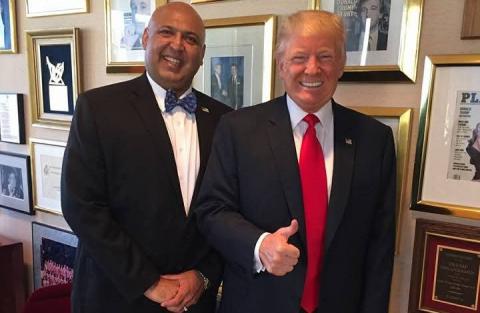

A high-level meeting between Pakistan's powerful army chief, Field Marshal Asim Munir, and US President Donald Trump has cast a spotlight on the shifting nature of US-Pakistan diplomacy. The engagement was reportedly arranged not through traditional diplomatic channels, but by Sajid Tarar, a Pakistani-American businessman with close ties to Trump. This development is raising concerns in Islamabad about the rise of personalized, informal networks that bypass the country's elected civilian government.
Sajid Tarar, founder of ‘American Muslims for Trump,’ has cultivated significant influence within Republican circles and the MAGA movement. His role as the primary facilitator for the Munir-Trump luncheon highlights a move towards a more transactional form of diplomacy, one that prioritizes personal connections over institutional processes. The meeting itself is a rare gesture, signaling the growing influence of Pakistan's military elites in Washington, seemingly at the expense of the formal foreign policy apparatus led by Prime Minister Shehbaz Sharif’s government.
While some may view this access to Trump's inner circle as a success, Tarar's political history is a source of apprehension for many in Pakistan. He has built his influence by aligning with Trump's right-wing platform and has been notably silent on policies that have targeted Muslim countries. His public praise for Indian Prime Minister Narendra Modi, combined with critiques of Pakistan's societal conservatism, suggests his priorities may not align with Pakistan's broader democratic interests.
Ultimately, this meeting reinforces a well-established pattern of parallel diplomacy conducted by Pakistan's military establishment. The reliance on a private power broker like Tarar suggests a strategic pivot that could further weaken civilian oversight and institutional foreign policy, leaving the nation's international relations shaped by figures operating outside of its democratic framework.